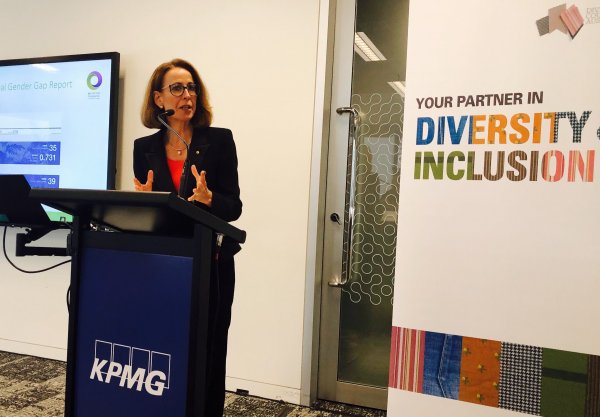So that’s 2019 done – and what a mixed bag this year has been. Once again, we couldn’t have done it without the generosity and support from all our contributors, readers, and colleagues.
Looking forward, 2020 is shaping up to be a very busy, and very interesting year. It will mark the 25th anniversary of the Beijing Declaration – the most historic blueprint for gender equality ever written. (See here for a civil society perspective on the recent Asia-Pacific Beijing+25 Ministerial Meeting).
2020 will also mark the 20th anniversary of the UN Security Council Resolution 1325 on women, peace and security. The groundbreaking resolution “specifically addresses how women and girls are differentially impacted by conflict and war, and recognises the critical role that women can and already do play in peacebuilding efforts”.
And finally, next year we’ll be five years into the implementation of the Sustainable Development Goals. Are we on track to meet the 2030 deadline?
These are just some of the things we’ll be focusing on in the new year. But for now, let’s take a look at the year gone by.

Here’s some of our 2019 highlights!
From the dancing AOC in the US to the new power quintet in Finland, we have been thrilled to see the young female power give the tired old politics a bit of a shakeup.
The representation of women in politics kept us busy this year. Dr Sonia Palmieri had a wish list for the 46th parliament; Mark Kenny explored the likelihood of a second female prime minister in the ‘House of Menpresentatives’; BroadAgenda Chief Editor, Virginia Haussegger looked at what happens when women go head to head in the political pit; and Dr Claire Somerville put Boris Johnson’s new cabinet under the gender lens.
Going beyond simply identifying issues, we also provided some practical solutions. Joanna Pradela provided an overview of the world’s first individual-level and gender sensitive measure of poverty developed by IWDA; Dr Jenna Price emphasised the need to amplify women’s voices; and Professor Carol Kulik showed how to increase the number of women in leadership roles.
Naturally, we looked up to some feminist powerhouses for advice and inspiration. Dr Anne Summers’ Press Club address will be talked about for years to come; the world-renowned Professor of Gender and Development, Naila Kabeer argued that we shouldn’t conflate women’s labor force participation with empowerment; and Emeritus Professor Marian Sawer reviewed the feminist battles of Iola Mathews.

Anne Summers IWD National Press Club Address, March 2019
Of course, no year goes by without a good hard look at all the ‘gaps’. Dr Leonora Risse busted the commonly heard gender pay gap myths; Dr Caroline Fisher looked at the gender ‘paying’ gap for news, Elizabeth Broderick AO discussed closing the pay gap in sports; and we covered the World Economic Forum’s annual Global Gender Gap Index.
Moving on to arts and culture, we reviewed poetry, zoomed in on the (under)representation of women in photography, looked at toxic masculinity in iconic Aussie films, and explored the validity of Taylor Swift’s newfound political activism.
With a keen eye on democratic innovations, we spoke to Professor David Farrell about the Irish Citizens’ Assembly which transformed reproductive politics in Ireland, and asked Associate Professor Nicole Curato from the Centre for Deliberative Democracy and Global Governance whether a similar approach could work in Australia.
We looked at the feminist foreign policy in Australia; the projected growth of Australia’s defence industry; the gendered impacts of climate change; and the (lack of) diversity in diplomacy.
Sadly, there was a lot of ground to cover on family violence. Renee Fiolet provided insights from the Indigenous perspective; Dr Sophie Yates emphasised the need for an intersectional approach for understanding the issue; Dr Samara McPhedran analysed family law and the claims about ‘fake violence’; and we spoke to the indefatigable Natasha Stott Despoja about Australia’s national emergency of violence against women.
We also explored the gender bias in news media; the tired media stereotypes of female politicians; the frequent occurrences of sexism and racism in customer service; and learnt more about the anger of ‘incels’.
And on the domestic front, we looked at the “perfect” military spouses; and how cooking dinner made one scientist lose her appetite.
These are just some of the highlights – scroll through the pages to find a treasure trove of essential reading!

Emeritus Professor Meredith Edwards; Associate Professor Selen Ercan; Dr Pia Rowe, BroadAgenda Editor; Professor Laurie Brown, Director Institute for Governance and Policy Analysis; Virginia Haussegger AM, Director 50/50 by 2030 Foundation.
We would like to say a big, heartfelt thank you to all our contributors, readers, and supporters – we couldn’t do any of it without you. In particular, we would once again like to thank the ongoing support from our colleagues at NATSEM, the Centre for Deliberative Democracy and Global Governance, the Institute for Governance and Policy Analysis, the Faculty of Business Government and Law, and the University of Canberra – thank you.
Finally, in the spirit of ends and new beginnings, this marks the last post from me as the BroadAgenda Editor. For three years, I’ve had the utmost pleasure and honor to be part of developing BroadAgenda from a simple idea into the busy hub of information it has become.
Next year, we are thrilled to welcome the highly respected journalist, Julie Hare to take on the role. With Virginia Haussegger as the Chief Editor, and myself as the Academic Editor, we will build BroadAgenda into the powerful multi-media platform for gender equality research and debate that we believe Australia needs!
But for now, we thank you all for a fantastic year, and wish you all a safe and happy holiday period.
Stay tuned for more when we return in 2020!
Virginia Haussegger In-Conversation with Anne Summers




